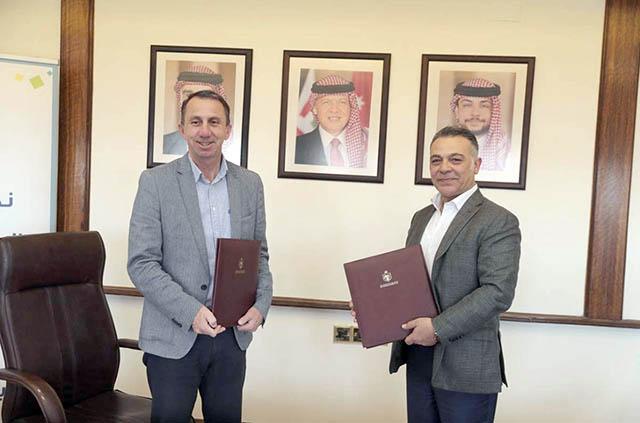- Local News
- Tue-2020-04-28 | 02:15 pm

The families include those of daily wage workers who do not receive aid from the National Aid Fund (NAF) or the Social Security Corporation (SSC) and are most affected by the COVID-19 crisis, according to a Planning Ministry statement.
The grant agreement was signed by Minister of Planning and International Cooperation Wissam Rabadi and Director General of Tkiyet Um Ali Samer Balqar.
Rabadi affirmed that this agreement is part of a series of governmental measures directed at daily wage workers in response to the Royal directives to find appropriate and adequate means to provide protection for them and meet their basic needs in light of the current exceptional circumstances.
The grant, which aligns with the objectives of the Economic and Social Productivity Enhancement Programme, will improve the standard of living of citizens and the most underprivileged groups by covering the costs of food parcels for these families.
The included families comprise 25,425 individuals, including 15,947 individuals below the age of 18 (62.7 per cent).
These families were chosen according to specific criteria, notably that the head of the family is a daily wage worker who does not have any pension, is not covered by the SSC and is not an NAF recipient.
"We are proud of our partnership with the Ministry of Planning for the fourth year in a row," Balqar said, stressing that this agreement "represents the best model for partnership between government and civil society organisations”, according to a methodology that aims to serve the poorest families in the Kingdom.
Tkiyet Um Ali works under the current conditions directly via the social protection team that was formed by Prime Minister Omar Razzaz to support families that are in need and affected by the repercussions of the COVID-19 crisis, he noted.
From 2016 to 2019, the Ministry of Planning and International Cooperation provided four-stage financing to Tkiyet Um Ali at a total value of JD1.980 million from the allocations of the Economic and Social Productivity Enhancement Programme.
This financing aims to contribute to supporting Tkiyet Um Ali’s programme to combat food poverty in underserved and underdeveloped areas and areas that need government intervention. This support has benefitted 45,000 families in need of food.
The Economic and Social Productivity Enhancement Programme carries out interventions, activities and other initiatives that contribute to enhancing the economic development of local communities and support various local community bodies with income-generating production projects that provide employment opportunities.










